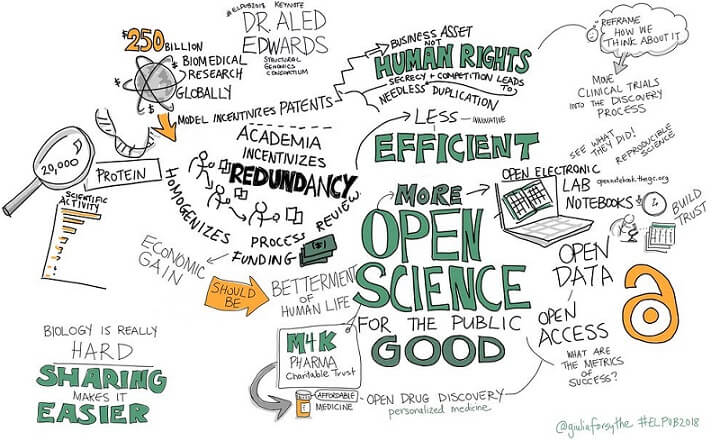In India, the road to securing admission to a top engineering college goes through entrance examinations that are designed to test one’s aptitude in various subjects. The nature of the curriculum and the cut-throat competition (compared to any other exam in the world) is such that more likely than not, students have to forgo their hobbies for months if not years in the final years of their school life. The rat race to the top has become so commonplace and acceptable that there are now cities in India and suburbs in various cities solely dedicated to churning out top-rankers for various elite engineering institutions (IITs, NITs, IIITs, BITS, etc.)
And so, after barely living a “life” for months, if not years, solely optimized for getting a rank in engineering entrance examinations at the cost of hobbies, socializing, and you know, just doing what teenagers do, we get the unfortunate un-social species called an “engineer.” Unfortunately, the elite engineering institutions in India do not generally provide a life that broadens the horizons of their newly-inducted guinea pigs. Most of these elite institutions only have engineering courses and degree programs. A few that might have science and humanities degree programs treat these as secondary. As a result, the social interaction that is needed to shape young minds in multiple ways for their overall personality development is absent. A closed habitat secluded from the sociopolitical events happening in the nation does provide stability to these elite institutions but at the cost of the development of engineering students as good citizens.
The nature of the engineering curriculum is unavoidably such that students learn to approach problems and solve them in a rigorously logical manner. Programming software is a part of this problem-solving for many. Living their lives solving so many of such engineering problems, students are forced to think about their lives in a digital (or binary) manner. This habit of treating everything as good or bad starts spilling out in real life as well. However, the world we live in is not digital. There are umpteen shades of gray here and not every problem can be solved by finding an optimal or a near-optimal solution. A lot of compromises go into navigating our world (whether be in politics or relationships). It is often the case that engineers find themselves disoriented after graduating from college and entering a world where they have to interact with people from all spheres of life. Politics, economics, history, sociology, law, and the practitioners of such subjects are thought to be idiots by many engineers because long ago they were able to secure a rank in one of the entrance examinations while many of them were not!
On top of that, God bless you if after four years of engineering you also plan to go to grad school for studying more of it, for only God can bless overall development upon you then. A very significant majority of masters and doctoral students are unable to cultivate good relationships with their advisers. A large part of this issue arises from the fact that the students, as well as their advisers (who were once engineering students themselves and went through the same grinding process), are both really bad at social skills. Choosing an academic adviser is as crucial as choosing a spouse and yet so many engineers fail in choosing the right adviser for themselves or are unable to nurture the relationship properly because, in their undergraduate life, they never learned how to cultivate people outside their friend circle.
उम्र भर ग़ालिब यही भूल करता रहा, धूल चेहरे पे थी और आईना साफ़ करता रहा | (Whole life “Ghalib” continued to commit the same mistake, the dirt was on his face while he kept wiping the mirror)
Even if the relationship between academic adviser and the student is smooth, the workload and the engineering curriculum in graduate school takes a heavy toll on many people by killing their creativity outside of academia. Many engineers start alienating common sense from their lives and start thinking about everything in a rigorous logical manner.
The Silicon Valley culture has so much pervaded the lives of engineers in the U.S. and India that being a nerd is worn as a badge of honor no matter that nobody can understand you except a select few in your circle. Even in mundane conversations and jokes, engineers often tend to use references to software and algorithms that nobody outside their circle can fathom. This further alienates them from the public at large. It is so unfortunate that the high-paying jobs that engineers secure hide their shortcomings in the eyes of society. Their anti-social actions are justified by labeling them nerdy. Their ill-mannered behavior is accounted for by calling them geeky. Their brainless dressing sense is explained by labeling them dorky. You get the point. There is a reason why most engineers worship billionaire tech-entrepreneurs despite the fact that most such people (as much as I have read about them) have poor social skills and even worse stability in their personal lives. But, money triumphs over everything else. God Bless Capitalism.
Engineers (even more among those who hold advanced degrees like Masters or Ph.D.) often think of others as inferior to them. Saying a few words of acknowledgment, appreciation, or thankfulness are alien to their comportment because again, years in academia subconsciously train them to believe that the only axis to excel in life is that of education. Initiating a conversation with someone is also considered a risk because it will hurt one’s sense of “pride” if the other person will not respond. Such people are comfortable being the biggest shark in their own lake rather than venturing out and exploring the infinite varieties of sea life in the ocean. To cover their sense of ignorance, engineers naturally concoct fiction around themselves by believing that only they are the ones really changing the world while other professionals are just working on less-important problems (you know like fixing democratic institutions, turning back the tide of climate change, struggling for human and animal rights, developing distribution mechanism for COVID-19 vaccines, devising economic policies for the next decade, etc.). What a tragedy that many of the best minds in a nation are comfortable working on minor technological advancements while they could contribute so much more for humanity if they could just come out of their bubbles.

 Why I have Mostly Stopped Reading Op-eds?
Why I have Mostly Stopped Reading Op-eds?